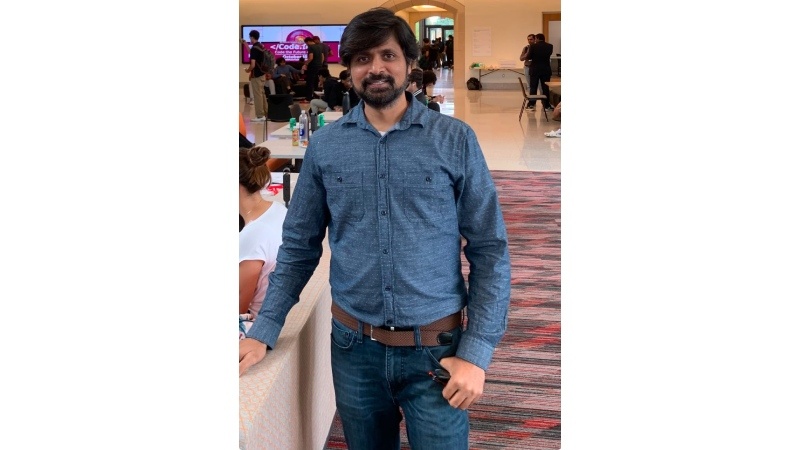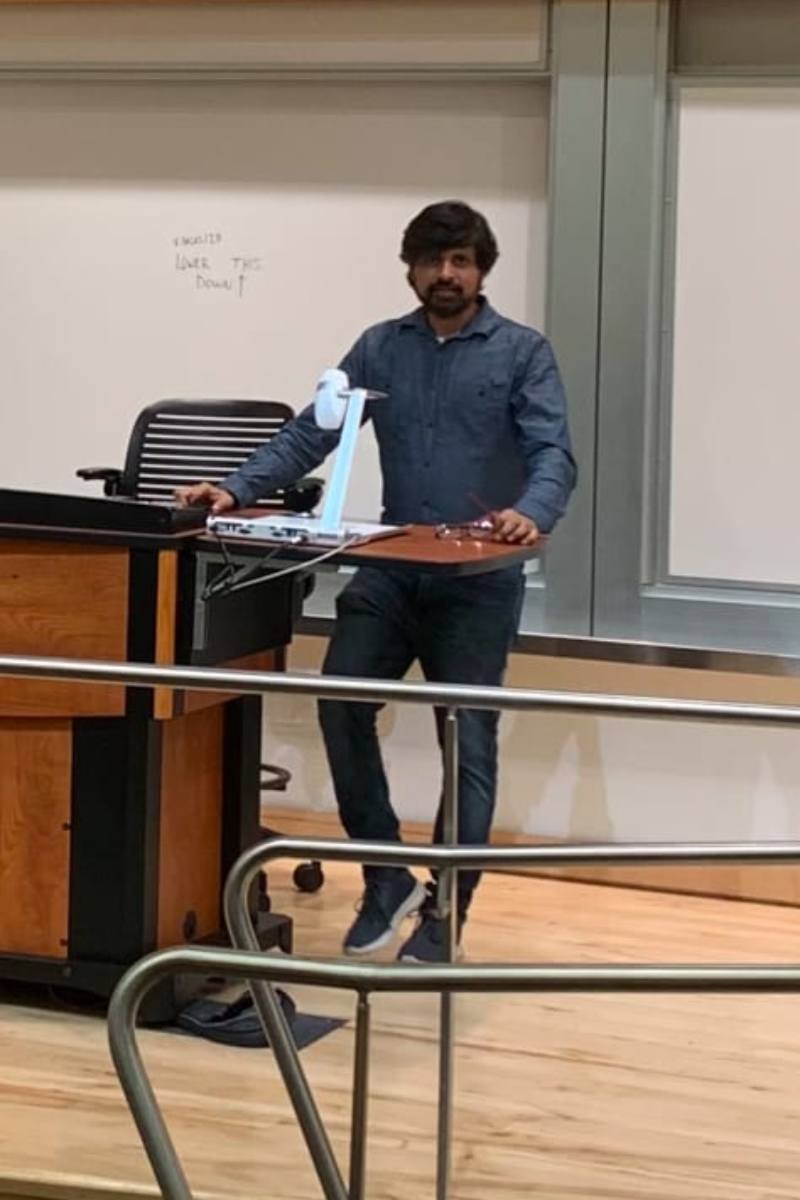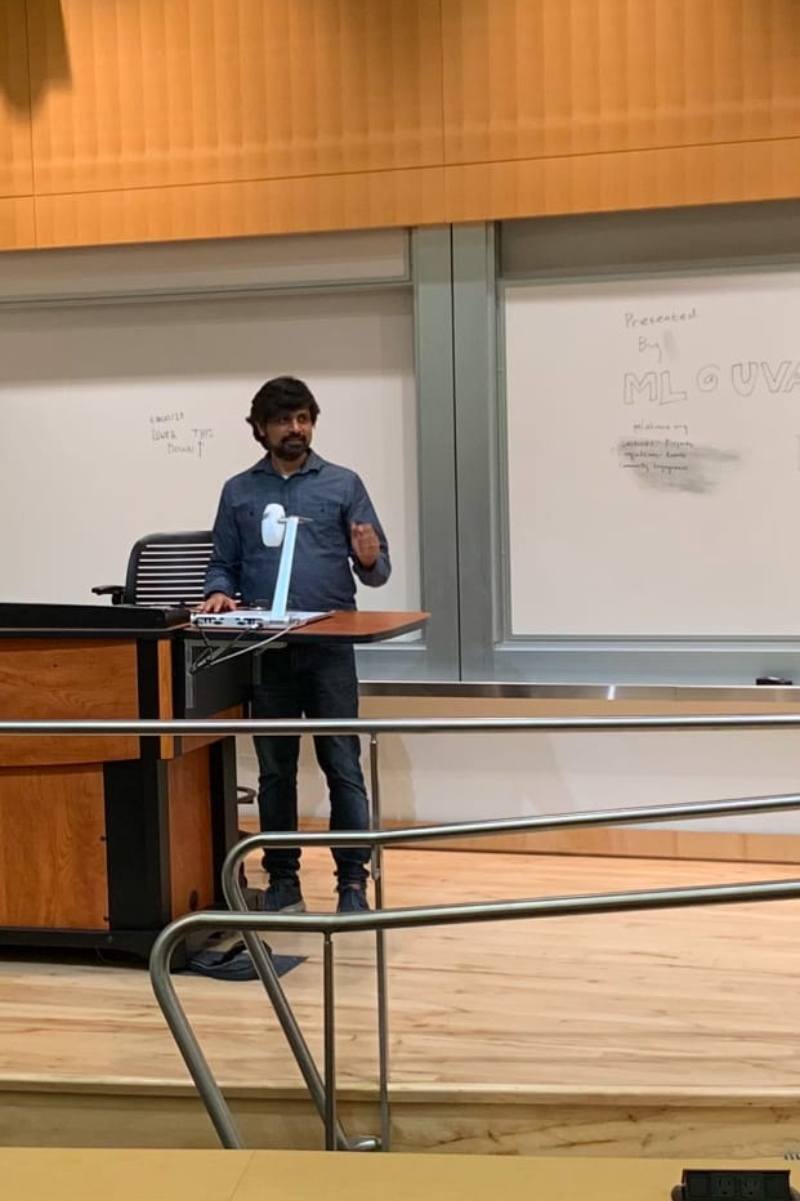
In an era where data is the new oil, leveraging advanced technologies like cloud computing and artificial intelligence (AI) is essential for innovation.
Shaik Abdul Kareem, a distinguished expert in cloud infrastructure, security, AI, and machine learning (ML), is at the forefront of this digital revolution. Recognized for his outstanding contributions to technology, research, and mentorship, he has significantly influenced the industry through his groundbreaking work. In this exclusive interview, Shaik Abdul Kareem discusses the impact of AI and cloud computing, the need for a culture of digital transformation.
“Cloud computing and AI/ML are no longer just trends; they are fundamental to the future of enterprise innovation. The ability to integrate AI-driven automation into cloud infrastructure is shaping the next industrial revolution.”
Abdul Kareem, cloud computing has revolutionized enterprise infrastructure. What are the biggest challenges enterprises face today in fully adopting cloud and AI integration?

One of the primary challenges is achieving seamless interoperability between legacy systems and modern cloud-based solutions. Many enterprises still rely on outdated architectures that do not support AI-driven automation. Security is another major concern—cloud environments are constantly evolving, which makes ensuring compliance with data protection laws and cybersecurity best practices increasingly complex. Additionally, organizations struggle with cost optimization and AI scalability. AI workloads require enormous computational resources, and efficiently managing these costs while maintaining performance is a challenge that many companies are grappling with today.
My work has focused on addressing these issues by designing cloud-native AI architectures that balance cost, security, and efficiency.
“A strong cloud and AI strategy is the key to maintaining a competitive edge. Organizations that fail to adapt will struggle to scale in an increasingly data-driven world.”
With AI’s increasing presence in cloud operations, how can companies leverage AI to enhance cloud security and reliability?

I have successfully implemented AI-powered site reliability engineering (SRE ) models that minimize downtime and optimize cloud infrastructure management, ensuring uninterrupted operations even in large-scale distributed environments.
AI is a game-changer for cloud security and reliability. It allows organizations to implement real-time anomaly detection, predictive threat intelligence, and automated incident response. AI-powered Security Information and Event Management (SIEM) systems, for example, can proactively detect vulnerabilities and prevent cyberattacks before they escalate. In terms of reliability, AI enhances SRE by predicting failures and recommending proactive mitigation strategies.
“AI-powered cloud security is not a luxury—it’s a necessity. The evolving cyber threat landscape demands intelligent, self-learning security mechanisms.”
There is a growing concern about the ethics and transparency of AI-driven decisions in cloud services. How should enterprises address this issue?
As a peer reviewer and contributor to AI ethics discussions, I advocate for the adoption of standardized frameworks that promote responsible AI usage in cloud platforms.
Ethical AI and transparency are critical in cloud computing, especially as AI-driven automation increasingly influences decision-making. Enterprises need to ensure that AI models are interpretable, bias-free, and auditable. This involves adopting explainable AI (XAI) frameworks that provide transparency into how AI models arrive at decisions. Additionally, organizations must enforce strong governance policies to regulate AI applications, ensuring compliance with fairness, accountability, and transparency (FAT) principles.
“Explainable AI (XAI) is crucial for cloud trustworthiness. Without transparency, AI adoption in cloud operations will remain limited.”
The industry is moving toward serverless and edge computing. How do these trends impact the future of AI and cloud computing?
Serverless and edge computing are redefining the way AI processes data. Serverless computing eliminates the need for manual infrastructure management, allowing developers to focus purely on code while cloud providers handle the backend operations. This shift improves scalability and cost efficiency for AI workloads. Edge computing, on the other hand, reduces latency by bringing AI computations closer to the data source, which is crucial for real-time applications like autonomous vehicles, IoT, and smart cities. I have worked on integrating AI with edge computing to enable intelligent decision-making at the edge, reducing dependence on centralized cloud infrastructures and improving overall system efficiency.
“Edge AI and serverless architectures are shaping the next evolution of computing. Real-time decision-making at the edge will redefine industries.”
Can you share a particularly challenging AI/cloud project you worked on and how you solved its complexities?
One of the most technically complex projects I led involved developing a cloud-native AI framework for real-time fraud detection in the financial sector. The challenge was to create a system that could process vast amounts of transactional data while ensuring low latency and high accuracy. We leveraged a combination of federated learning and serverless AI pipelines to distribute model training across multiple nodes without compromising data privacy.
The implementation resulted in a 70% reduction in fraud-related losses and was recognized as a benchmark for AI-driven fraud detection solutions. This project reinforced the importance of scalable AI architectures in cloud environments.
“AI-driven fraud detection is a major breakthrough in cloud-based financial security. Combining AI, cloud, and real-time analytics has significantly reduced financial fraud.”
With advancements in quantum computing, do you see a potential convergence between AI, cloud, and quantum computing?
Absolutely. Quantum computing has the potential to revolutionize AI by exponentially accelerating complex computations that classical computers struggle with. The convergence of AI, cloud, and quantum computing could enable breakthroughs in cryptography, drug discovery, and large-scale optimization problems. Cloud providers are already experimenting with quantum computing services, and I foresee AI-driven quantum algorithms being integrated into cloud environments for solving high-dimensional machine learning tasks. While quantum computing is still in its early stages, I am actively researching how hybrid AI-quantum systems could redefine cloud infrastructure in the next decade.
“Quantum computing will unlock new possibilities for AI and cloud computing. The future lies in hybrid AI-quantum integration.”
As an Industry leader what advice would you give to aspiring AI and cloud computing professionals looking to make an impact in the industry?
My advice is to adopt a problem-solving mindset and continuously evolve with the technology landscape. AI and cloud computing are fast-moving fields, so staying updated through certifications, hands-on projects, and industry collaborations is crucial. Engaging in research, contributing to open-source AI/cloud projects, and networking with experts can provide invaluable insights.
Additionally, I encourage professionals to explore interdisciplinary applications of AI and cloud, as innovation often happens at the intersection of multiple domains. Passion, perseverance, and a commitment to ethical AI practices will position aspiring professionals as future leaders in this field.
“AI and cloud computing are not just technical fields—they require strategic thinking, ethical responsibility, and continuous innovation.”
Finally, looking ahead, if you had the opportunity to work on any futuristic AI/cloud project, what would it be?
I would love to work on AI-driven autonomous cloud orchestration—a self-learning cloud management system that intelligently optimizes resources, detects security threats, and ensures compliance without human intervention. Imagine a cloud platform that adapts dynamically based on workload demands, security threats, and cost considerations, all powered by AI. This would eliminate inefficiencies in cloud management, making AI and cloud computing even more powerful. Given my experience in AI-driven infrastructure optimization, I am optimistic that such an autonomous system will be a reality in the near future.
About Shaik Abdul Kareem: He is a recognized expert in cloud computing, AI, and ML, with a strong background in security, site reliability engineering, and infrastructure optimization. He has working with Fortune 500 companies, contributed to cutting-edge research, and played a key role in driving digital transformation initiatives. A pioneer in AI-driven cloud strategies, he has played a key role in designing scalable cloud infrastructures that power enterprise applications globally. His research contributions, technical leadership, and commitment to advancing AI ethics position him as a thought leader shaping the future of AI and cloud computing.